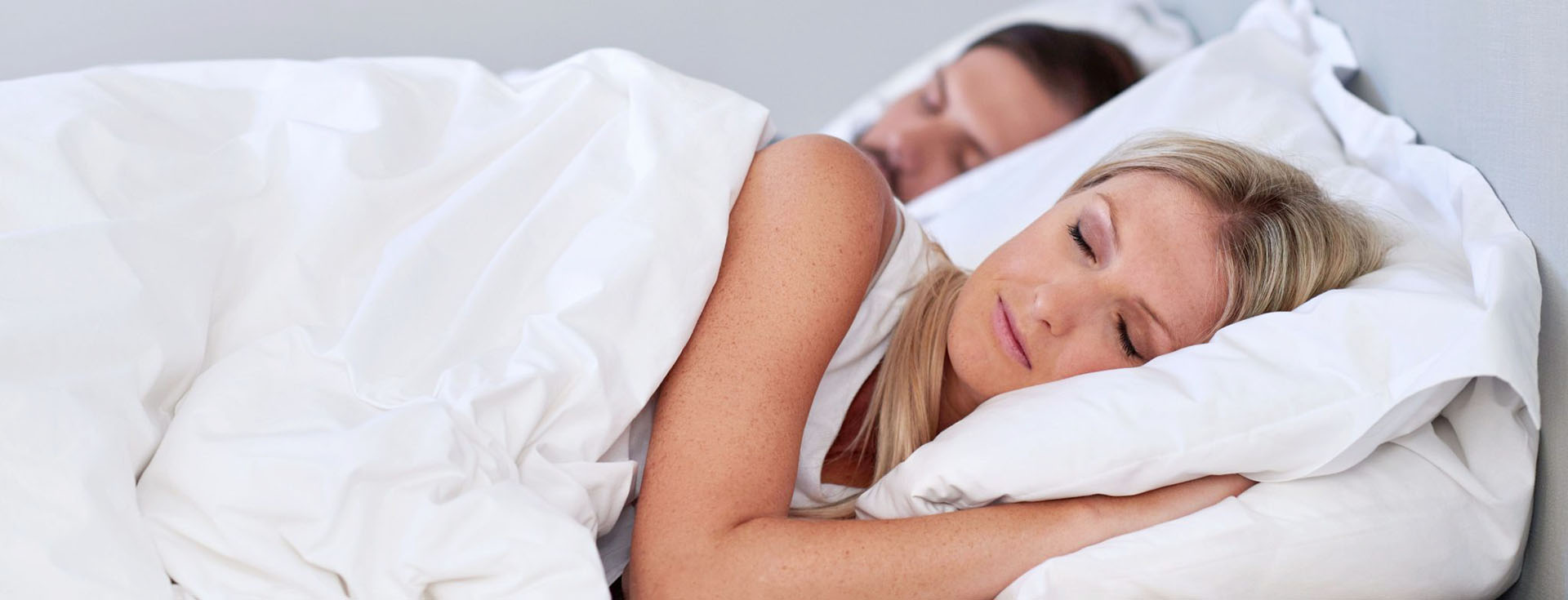
Snoring
Rhonchopathy is the medical term for the phenomenon of “snoring”. It refers – regardless of the disease value – to noisy breathing at night. Those suffering from rhonchopathy may simply be annoying to their fellow sleepers, or they may be suffering from a serious illness. It is important to clarify this and thus also what the causes of rhonchopathy are and what can be done about it.
Causes of snoring
Snoring occurs when the anatomical structures that form the airway begin to vibrate at constricted points due to the airflow. We know this effect from holding 2 sheets of paper together and blowing on their edges. The constrictions can be localized in several places, so-called “levels”: in the area of the nose, the palate or the base of the tongue. They can occur singly or in combination. Our therapy using mandibular protrusion splints primarily treats the falling back of the tongue, also stabilizes the soft palate proportionally and widens the airway.
Breath sounds
Breathing noises are normal. When the airflow passes anatomical structures, turbulence can cause noise. This hissing or sometimes whistling sound can occur during inhalation or exhalation and only becomes a health concern when it results in a temporary shortage of oxygen. “Upper Airway Resistance Syndrome.”
Primary snoring
A distinction is made between “primary snoring” and “obstructive sleep apnea”. In primary snoring, the oxygen supply to the body does not change significantly due to the obstruction of breathing. Noise annoyance is the primary concern. In obstructive sleep apnea, on the other hand, the oxygen content of the blood drops, causing damage to health.



